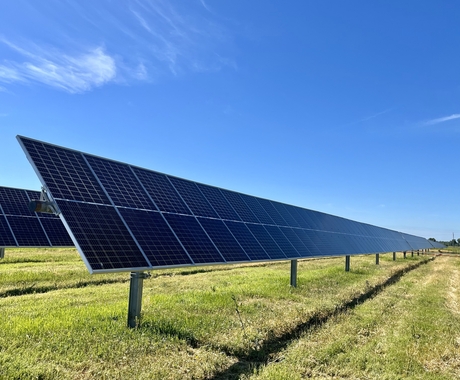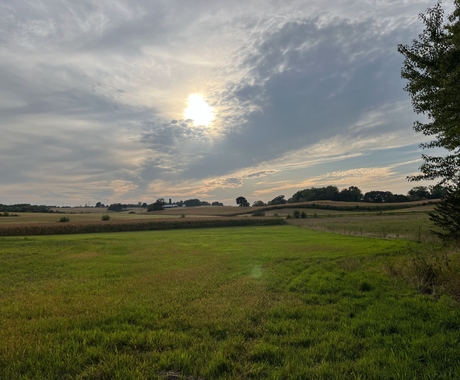Teresa Hoffman, policy communications associate, teresah@cfra.org, 402.687.2100 ext. 1012; or Rhea Landholm, brand marketing and communications manager, rheal@cfra.org, 402.687.2100 ext 1025
LYONS, NEBRASKA – The U.S. Department of Agriculture (USDA) has extended the application deadline for its Rural Energy for America Program (REAP) to April 15.
REAP provides financial assistance to agricultural producers and rural small businesses to complete a variety of clean energy projects.
“If you have been considering installing renewable energy systems or making energy efficiency improvements at your farm or rural small business, now is the time to apply for federal funding to offset the cost of the investment,” Molly Malone, policy assistant for the Center for Rural Affairs said.
According to the USDA, farmers and rural small businesses can apply for grants of $20,000 or less and loan/grant (combinations) of $20,000. Funds can be used for solar panels, insulation, and even more efficient doors and windows.
Small businesses must be located in a community with less than 50,000 people, it is considered rural. Ag producers must have at least 50 percent of their gross income from the ag operation.
A combination of factors led to the extension of the deadline, one being fewer applications this year.
“Last year was hard on rural communities and farmers,” Malone said. “So, fewer are making capital investments which may account for part of the reduction in applicants.”
The application requires a budget. In most cases, applicants will need to consult with a contractor or provider to complete the budget, so it is best to begin the process as soon as possible. Excluding attachments, the application for projects with a total cost of less than $80,000 are about three pages long.
For more information on the REAP program, visit rd.usda.gov or contact your state office. Because of the COVID-19 pandemic, interested applicants should call, not visit, their state office with questions.



